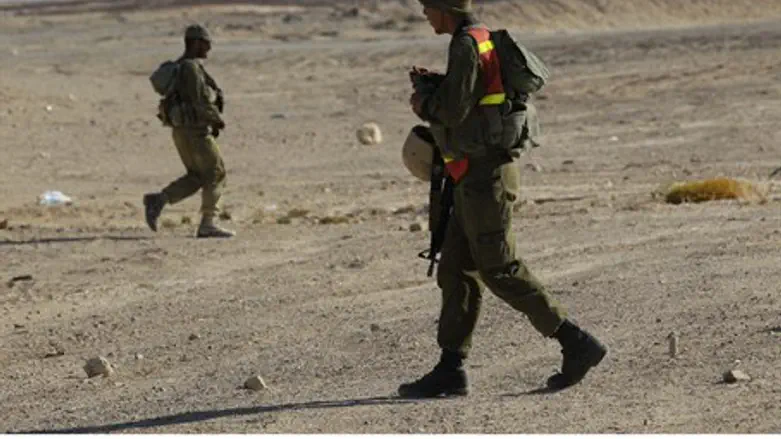
Israel is closely monitoring developments in Egypt as a new regime begins to take form following the military ouster of Muslim Brotherhood-backed President Mohamed Morsi.
There has been no comment from the office of Prime Minister Binyamin Netanyahu, who has asked all cabinet ministers, the Foreign Ministry and all official spokesperson not to comment on the events taking place across Israel’s southern border.
One official told the AFP news agency on condition of anonymity the government is "closely monitoring the situation in Egypt but is not making any predictions because things are still developing.
"It is important that the Egyptian people can enjoy a new level of freedom and self-determination... but the current situation has sent shock waves throughout the Arab world and it is causing some concern in Israel," the source said.
"There is great uncertainty over Egypt’s future and it is very difficult for Egypt, which is caught up with internal issues, to deal with security problems, notably from terror groups in Sinai," another source told Army Radio – also speaking on condition of anonymity.
Former public security minister Avi Dichter, however, was willing to speak on the record and grimly told Voice of Israel radio listeners in Hebrew on Thursday that he believes Israel will eventually be punished by the Muslim Brotherhood for its president's ouster.
Tthe protests which swelled into a revolution of 22 million protesters seemed "clearly a planned military coup," he said. "The army started seeing that it was losing its power and financial interests, and when Morsi started going after the judiciary, the army understood the picture. This is what happened [also] in Algeria," he said.
"The army didn’t like the results of the elections and annulled it, which led to a bloodbath. I sincerely hope the same doesn’t happen in Egypt. We live in a neighborhood that when things happen they usually reach us too," warned the former head of the Israel Security Agency (Shin Bet).
"I don’t see the Muslim Brotherhood taking the arrest of its leadership quietly for very long. They have a long history of producing terrorism to get their points across. Sinai always pays the price – we saw it after Mubarak’s ouster, and we’re likely to see it after Morsi’s ouster," he predicted. "Sinai is a no-man’s land, and Israel will pay the price for Sinai’s situation."
Nevertheless, much of Israel’s connection with Egypt is maintained at the military level, the Israel Hayom daily newspaper pointed out in an article published Thursday. "It is the military officials who value the relationship with Washington and cultivate the relationship with Israel," wrote Shlomo Cesana and the Israel Hayom staff. "Therefore, for Israel, a leadership made up of military generals is perhaps more approachable than a government led by a party with religious leanings."
But the bottom line, agreed the newspaper, is Sinai, where the Muslim Brotherhood was blocked by the U.S. as well as Israel from destroying Egypt’s peace treaty with the Jewish State.
It is also in Sinai where operatives from numerous terror organizations ranging from Al Qaeda to Hizbullah have busily built their bases of operations in the two years since former President Hosni Mubarak’s ouster.
The one target they all agree on is Israel.